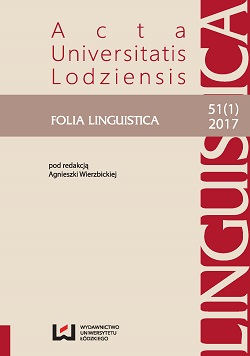Między nomen appellativum a nomen proprium w poznańskich księgach ziemskich z XIV i XV wieku
Between nomen appelativum and nomen proprium in the court books in 14th and 15th century of greater Poland
Author(s): Maria TrawińskaContributor(s): Agnieszka Wierzbicka (Editor)
Subject(s): Language studies, Language and Literature Studies, Theoretical Linguistics, Applied Linguistics
Published by: Wydawnictwo Uniwersytetu Łódzkiego
Keywords: onomastics; anthroponyms; apelatives anthroponymic
Summary/Abstract: The article discusses the transition of words from the category of common names to the category of proper names. The way of naming people in the fourteenth- and fifteenth-century court books indicates that it was a long process, in which the common denomination (e.g. voivode, castellan) fulfilled a double function before it became a proper name. In the complex descriptive and binominal formations it was additional information. When occurred alone, it often meant not only a common name, but also pointed to a particular person, i.e., it belonged to the transition phase between the nomen appellativum and nomen proprium.
Journal: Acta Universitatis Lodziensis. Folia Linguistica
- Issue Year: 1/2017
- Issue No: 51
- Page Range: 199-206
- Page Count: 8
- Language: Polish

